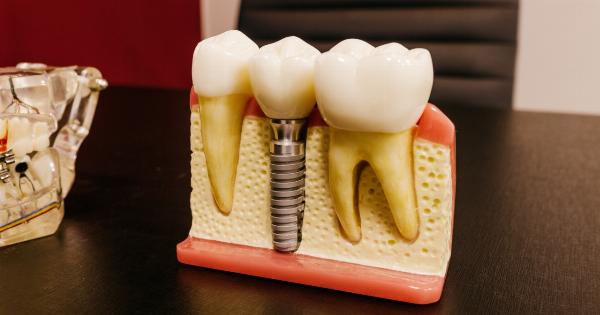As humans, we are susceptible to various odors and scents. These can range from pleasant perfume to pungent sweat. However, some smells may not only be unpleasant but also indicative of an underlying health condition.
Here are the top bodily scents to look out for:.
1. Bad breath
Bad breath, also known as halitosis, occurs when there is a buildup of bacteria in the mouth. This can result from poor oral hygiene, gum disease, or tooth decay. Certain foods and drinks can also cause bad breath such as coffee, garlic, and onions.
However, if bad breath persists even after brushing and flossing, it may indicate an underlying health condition such as acid reflux, liver disease, or diabetes.
2. Foul smelling urine
Urine is normally odorless or has a slightly sweet scent. However, a strong or unpleasant odor may signify an infection or an underlying medical condition such as dehydration, liver disease, or a urinary tract infection (UTI).
If there is a persistent odor in the urine or if there is an accompanying pain or discomfort during urination, it is essential to seek medical attention.
3. Strong-smelling sweat
Sweating is a natural bodily function that helps regulate our body temperature. However, strong-smelling sweat may indicate a medical condition such as hyperhidrosis or bacterial overgrowth on the skin.
It may also signify a dietary issue like excessive intake of spicy food or alcohol. Seek medical attention if the odor persists even after practicing good hygiene habits.
4. Foul-smelling stool
Feces usually has a pungent smell but changes in its odor may indicate an underlying health condition. A foul-smelling stool can be a symptom of a digestive issue such as celiac disease or inflammatory bowel disease (IBD).
It may also indicate an infection or an increase of fat in the body due to poor dietary choices or malabsorption. If there is pain, discomfort or bleeding during bowel movements, it is essential to see a doctor.
5. Fruity-smelling breath
A fruity-scented breath could be a sign of diabetes, a metabolic disorder characterized by high blood sugar levels. This odor is produced due to the body producing ketones when it lacks glucose as an energy source.
Individuals with diabetes should monitor their glucose and ketone levels regularly to avoid complications.
6. Fishy-smelling discharge
In women, a fishy-smelling vaginal discharge can be an indicator of bacterial vaginosis (BV), a common infection caused by the overgrowth of bacteria in the vagina. BV can be caused by poor hygiene, douching, and using antibiotics.
It is treatable with antibiotics, and proper hygiene habits can prevent future occurrences.
7. Sweet-smelling breath or sweat
A sweet or fruity smell in the breath or sweat may indicate a rare metabolic disorder known as maple syrup urine disease (MSUD). This condition is caused by the inability of the body to metabolize certain amino acids.
If left untreated, it can lead to brain damage and even death. It is essential to see a doctor if there is a persistent sweet or fruity odor in the breath or sweat.
8. Musty-smelling clothing or skin
A musty or moldy smell in clothing or skin may signify exposure to mold. Mold is a type of fungus that grows in damp environments. Exposure to mold can not only cause allergies but can also lead to respiratory problems like asthma and bronchitis.
Prevention methods like proper cleaning, ventilation, and controlling moisture can help avoid exposure to mold.
9. Ammonia-smelling sweat
An ammonia smell in sweat may indicate an underlying kidney issue or dehydration. The kidneys are responsible for removing waste and excess water from the body.
If the kidneys are not functioning correctly, ammonia may build up in the body and cause an odor in sweat. Proper hydration and seeking medical attention can help avoid complications.
10. Rotten egg-smelling burps
A rotten egg smell in burps could be a symptom of gastroesophageal reflux disease (GERD) or a bacterial infection in the stomach. GERD is a condition where stomach acid flows back up into the esophagus, causing discomfort and a sour taste in the mouth.
Both conditions are treatable with medication and proper dietary choices.



























